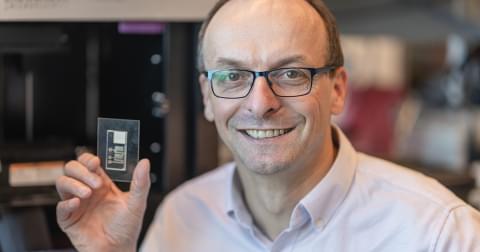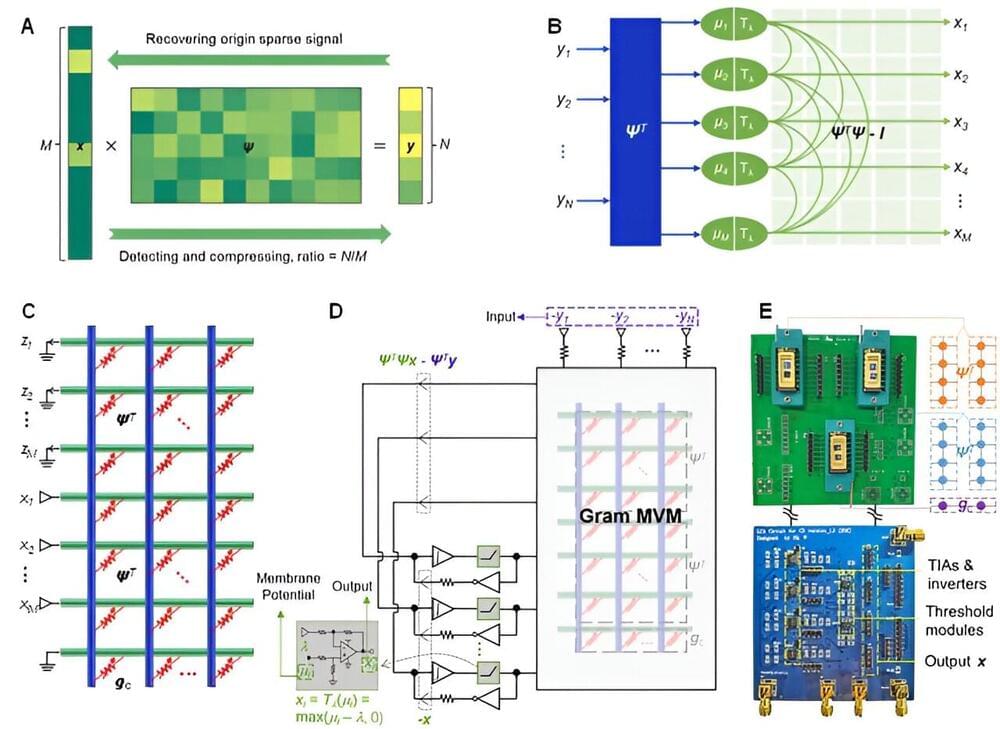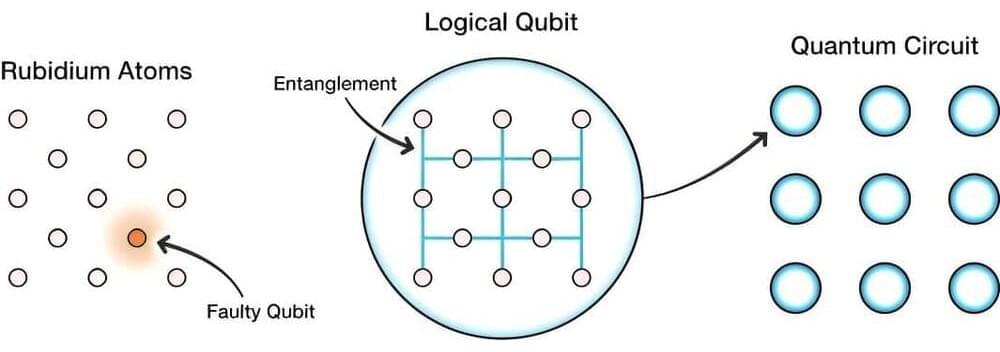This video was supported by Screen Australia and Google through the Skip Ahead initiative. Part 1 is here: https://youtu.be/muoIG732fQA?si=_vFy9siMqkOdO1xVf y…
Category: computing – Page 365

An advanced computational tool for understanding quantum materials
Researchers at the University of Chicago’s Pritzker School of Molecular Engineering (PME), Argonne National Laboratory, and the University of Modena and Reggio Emilia have developed a new computational tool to describe how the atoms within quantum materials behave when they absorb and emit light.
The tool will be released as part of the open-source software package WEST, developed within the Midwest Integrated Center for Computational Materials (MICCoM) by a team led by Prof. Marco Govoni, and it helps scientists better understand and engineer new materials for quantum technologies.
“What we’ve done is broaden the ability of scientists to study these materials for quantum technologies,” said Giulia Galli, Liew Family Professor of Molecular Engineering and senior author of the paper, published in Journal of Chemical Theory and Computation. “We can now study systems and properties that were really not accessible, on a large scale, in the past.”
Digital immortality: would you upload your mind to a computer?
But what would it actually mean to transfer your mind from “meat space” to cyberspace, and how could it be done? The basic idea rests on several assumptions, says Angela Thornton, a researcher at the Horizon Centre for Doctoral Training at University of Nottingham, who is also partnered with the Carboncopies Foundation, a non-profit that focuses on “whole brain emulation” and the creation of substrate-independent minds. “It assumes that we could replicate our brain [with] a certain level of understanding of how it works,” she says. “Not necessarily knowing all the detail, but enough to be able to emulate it.” Then, she adds, we have to make the assumption that the “mind” (i.e. the abstract part of us that thinks, remembers, imagines and senses) naturally emerges from the structures of the physical brain.
This is a lot to take on, which is partly why current brain emulation research is still stuck at the level of worms and, in more advanced studies, mice. Whether you agree with them or not, though, the arguments to take experiments further – toward larger mammals and, finally, humans – are quite obvious. For one, we could theoretically ‘live’ forever as a disembodied consciousness (or at least until the machines that hosted our virtual minds were destroyed), and continue interacting with our loved ones after they’ve passed as well. It’s possible that this could also go some way to solving the alleged population crisis, while limiting the impact of our physical bodies on the planet’s finite resources.
Of course, there are plenty of important questions that need answers before any of this can actually happen. Below, Thornton helps us unpick some of the main constraints and controversies.

Made-to-Order Diagnostic Tests may be on the Horizon
McGill University researchers have made a breakthrough in diagnostic technology, inventing a ‘lab on a chip’ that can be 3D-printed in just 30 minutes. The chip has the potential to make on-the-spot testing widely accessible.
As part of a recent study, the results of which were published in the journal Advanced Materials, the McGill team developed capillaric chips that act as miniature laboratories.
Unlike other computer microprocessors, these chips are single-use and require no external power source — a simple paper strip suffices.


New, super-smart hardware could provide drastic cuts in power consumption
Greener data processing requires systems that work smarter, faster, and are more energy efficient. Researchers from the Norwegian University of Science and Technology (NTNU) have developed a tiny piece of super-smart hardware that enables all of the above.
Anyone who knows anything about running computer programs knows that they take time, and everyone wants the program they are running to work as quickly as possible.
A new, tiny piece of hardware designed by computer scientists can be integrated into processors, which are the computer’s brains, making it easier for developers to write programs that run faster and more efficiently.

Research team develops analog hardware solution for real-time compressed sensing recovery in one step
A research team led by Prof. Sun Zhong at Peking University has reported an analog hardware solution for real-time compressed sensing recovery. It has been published as an article titled, “In-memory analog solution of compressed sensing recovery in one step” in Science Advances.
In this work, a design based on a resistive memory (also known as memristor) array for performing instantaneous matrix-matrix-vector multiplication (MMVM) is introduced. Based on this module, an analog matrix computing circuit that solves compressed sensing (CS) recovery in one step (within a few microseconds) is disclosed.
CS has been the cornerstone of modern signal and image processing, across many important fields such as medical imaging, wireless communications, object tracking, and single-pixel cameras. In CS, sparse signals can be highly undersampled in the front-end sensor, which breaks through the Nyquist rate and thus significantly improving sampling efficiency.

Utility-Scale Quantum Program Advances Toward Prototyping
DARPA’s Underexplored Systems for Utility-Scale Quantum Computing (US2QC) program seeks to determine whether an underexplored approach to quantum computing can achieve utility-scale operation — meaning its computational value exceeds its cost — faster than conventional predictions.
In the initial phase, each company presented a design concept describing their plans to create a utility-scale quantum computer. In the follow-on phase, selected performers aim to take their concepts to the next level. Now, US2QC’s key goal centers on developing and defending a system design for a fault-tolerant prototype, a smaller-scale quantum computer demonstrating that a utility-scale quantum computer can be constructed as designed and operated as intended.
This prototype system design will identify all required components and sub-systems and establish their minimum performance requirements. A DARPA-led government test and evaluation team consisting of technical experts will evaluate design viability.

Researchers create first programmable, logical quantum processor
Harvard researchers have realized a key milestone in the quest for stable, scalable quantum computing, an ultra-high-speed technology that will enable game-changing advances in a variety of fields, including medicine, science, and finance.
The team, led by Mikhail Lukin, the Joshua and Beth Friedman University Professor in physics and co-director of the Harvard Quantum Initiative, has created the first programmable, logical quantum processor, capable of encoding up to 48 logical qubits, and executing hundreds of logical gate operations, a vast improvement over prior efforts.
Published in Nature, the work was performed in collaboration with Markus Greiner, the George Vasmer Leverett Professor of Physics; colleagues from MIT; and QuEra Computing, a Boston company founded on technology from Harvard labs.